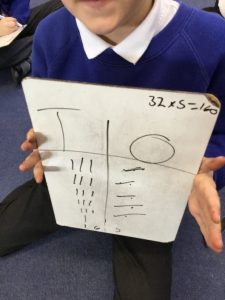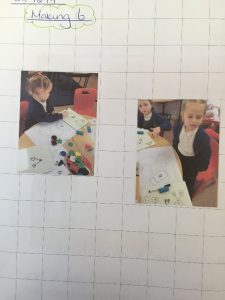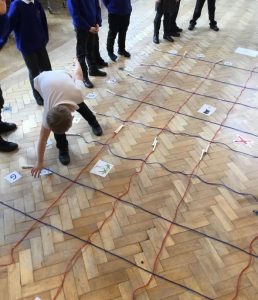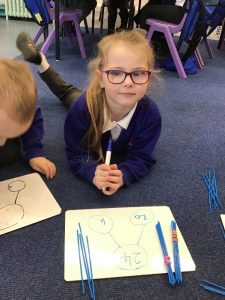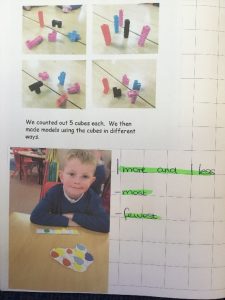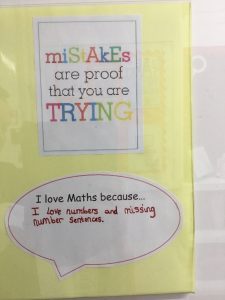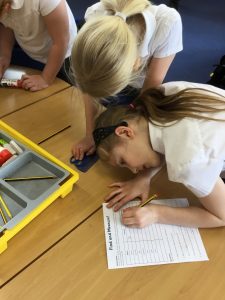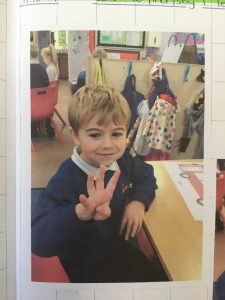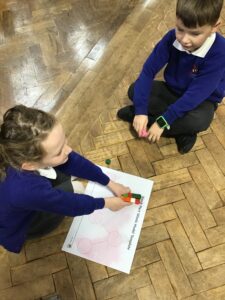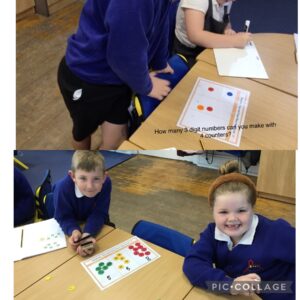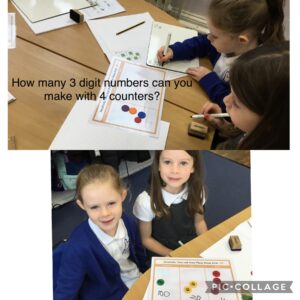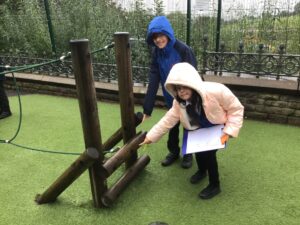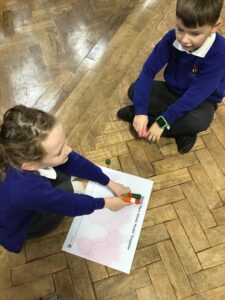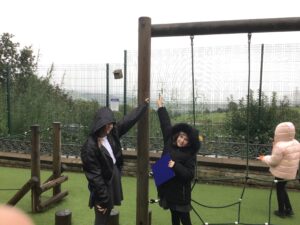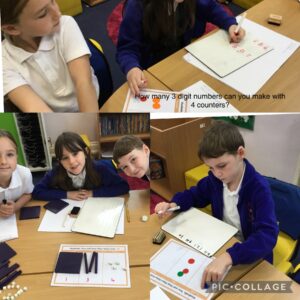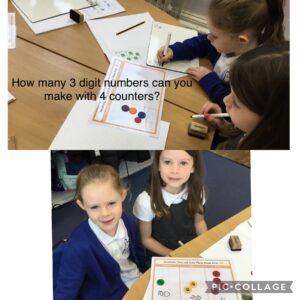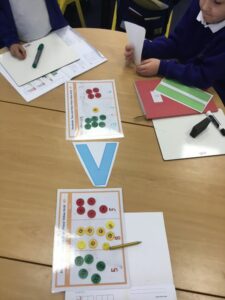Maths
Mathematics Intent
At Mottram CE Primary School, we believe that Mathematics is the foundation for understanding the world and we want our pupils to become confident and resilience Mathematicians, who are fluent in the fundamentals.
Our intention is to provide all of our pupils with equal opportunities, regardless of their abilities. We want our pupils to experience challenge, whilst making rich connections, reasoning mathematically and solving problems. We aim to provide pupils with a variety of exciting experiences that encourage a love of Math and develops their curiosity. Pupils will be pattern seekers and will understand that Mathematics is critical to other areas of the curriculum.
All pupils will be supported and challenged to achieve their full potential. We aim to equip our pupils with the belief and the knowledge and skills to flourish and reach their full potential, in the classroom, beyond the classroom and into later life.
Mathematics Implementation
We have designed the curriculum to build on previous learning and to provide support and challenge for all. We follow our progression document, which is designed following the Early Learning Goals (2021), the National Curriculum (2014). The NCETM Curriculum Prioritisation and the White Rose Maths Scheme from the Early Years Foundation Stage (EYFS) to Year 6.
Our progression document shows that knowledge and skills are taught within each year group and it is evident how these skills develop year-on-year. The progression document is organised into the different areas of Mathematics and some content is repeated within each year to ensure consolidation of a particular Math area.
Early Years Foundation Stage (EYFS)
In Early Years Foundation Stage (EYFS), the teachers use the Development Matters document to plan, leading to the achievement of The Early Learning Goals (ELGs) set out in EYFS Statutory Framework. Planning is based on the White Rose Maths Scheme.
The teaching and learning focus on number and numerical patterns.
ELG: Number
Children at the expected level of development will: – Have a deep understanding of number to 10, including the composition of each number; – Subitise (recognise quantities without counting) up to 5; – Automatically recall (without reference to rhymes, counting or other aids) number bonds up to 5 (including subtraction facts) and some number bonds to 10, including double facts.
ELG:
Numerical Patterns Children at the expected level of development will: – Verbally count beyond 20, recognising the pattern of the counting system; – Compare quantities up to 10 in different contexts, recognising when one quantity is greater than, less than or the same as the other quantity; – Explore and represent patterns within numbers up to 10, including evens and odds, double facts and how quantities can be distributed equally.
Mathematics is taught daily, with the children completing a focused activity, which is recorded in a book, weekly. Provision throughout the week includes activities based on the weekly focus. Counting is done daily, within lessons and around routines, for example, lining up.
We follow the concrete, pictorial and abstract method of learning, although in the EYFS, this is weighted more to the concrete and pictorial stages. Learning through play offers the children numerous opportunities to build on and enhance their understanding of number.
Key Stage 1 and 2
Mathematics is taught at least five times a week discretely, for at least 50 minutes in Years 1 to 6. Opportunities for mental Math, including counting, are provided throughout the school day. To develop fluency, arithmetic skills and the recall of the multiplication tables, we use a range of exciting resources, including White Rose 1-minute Maths, 2-Minute Maths, Times Table Rockstars and practical games.
All lessons are planned and taught following a sequence and in small steps to ensure progression and understanding. Each lesson builds on prior knowledge and a variety of planning resources are used to provide bespoke teaching and learning that is designed to support, interest, inform and inspire all pupils.
Each lesson includes fluency, reasoning and problem solving activities to allow pupils to make connections and develop their understanding of each concept. Pupils are presented with concrete, pictorial and abstract representations to support conceptual understanding, develop a deeper understanding of the Math and maximise the chances of success. Within each lesson, pupils are provided with opportunities to work independently, in pairs and in small groups.
Mathematical language is explicitly taught within and across lessons. STEM sentences are used to model the accurate vocabulary which enables pupils to communicate their ideas, understanding and findings with Mathematical precision as well as clarity.
We have high expectations and challenge all pupils within each lesson; therefore, all pupils are provided with the equal opportunities. To support pupils, differentiated scaffolding and support is provided where appropriate. This may include: peer-support, adult-support, the use of visuals and/or the use of pictorial or concrete resources. Staff are committed to tackling the specific barriers our pupils may face to ensure they make progress. Interventions, such as Talk for Number and the 5 minute number box, may be put in place to support individuals or groups of pupils.
All classes highlight mistakes as a learning opportunity for all. We celebrate a child’s ‘super slip up,’ which teaches other pupils not to make the same error and contributes to developing a positive, Mathematical mindset.
To ensure pupils have retained learning over time, White Rose Flashback 4 revision tasks are set and each Maths lesson begins with previously learnt arithmetic questions.
Throughout the whole curriculum, fun and engaging opportunities to extend and promote Mathematics are provided, linked to the topics being taught through the Curriculum.
We are part of a teacher research group with the Maths Hub Turin and all staff within the school engage in regular continual professional development training with different providers, including the Local Authority, the Maths Hub and White Rose Maths.
Mathematics Impact
Our pupils are self-motivated, confident and enjoy Mathematics. They have enquiring minds and present a positive attitude towards their learning, believing that they can achieve and succeed. Pupils at Mottram understand the importance of Mathematics in all areas of the curriculum, and they appreciate the opportunities it can provide beyond school life.
Pupil’s work is stored in books and on displays around school to celebrate their efforts and achievements. Work in books shows progression over time and that pupils take pride in their work. It is evident that pupils rise to the challenge and have the ability to use and apply what they have learnt to recognise relationships and make connections in Mathematics.
Formative assessment strategies, which are implemented in all lessons and summative assessments, which are gathered on a termly basis, show that pupils are making progress within lessons and throughout each school year.
Pupil Voice
‘We are learning about number 6 today, but number 5 is the best.’ (EYFS)
If I need help, ‘We ask a buddy or try hard in our brains. Or we can ask a teacher.’ (Year 1)
‘We learn numbers and I like numbers!’ (Year 2)
‘I love Math because I love solving things.’ (Year 3)
‘Sometimes it’s (Math) tricky, but we always work it out in the end.’ (Year 4)
‘Math is very fun. The teachers make it fun. We play games sometimes and we use the equipment.’ (Year 5)
A good Mathematician must ‘listen, be patient, have resilience and know the times tables as we use them for everything, fractions, money, decimals, everything!’
(Year 6)
Policy
Mathematics Calculation Policy
Progression
Curriculum Prioritisation DfE and NCETM
Useful Websites for Home Learning
https://www.topmarks.co.uk/maths-games/3-5-years/counting
https://www.topmarks.co.uk/maths-games/hit-the-button
https://www.math-exercises-for-kids.com
https://www.bbc.co.uk/bitesize/subjects/z6vg9j6








